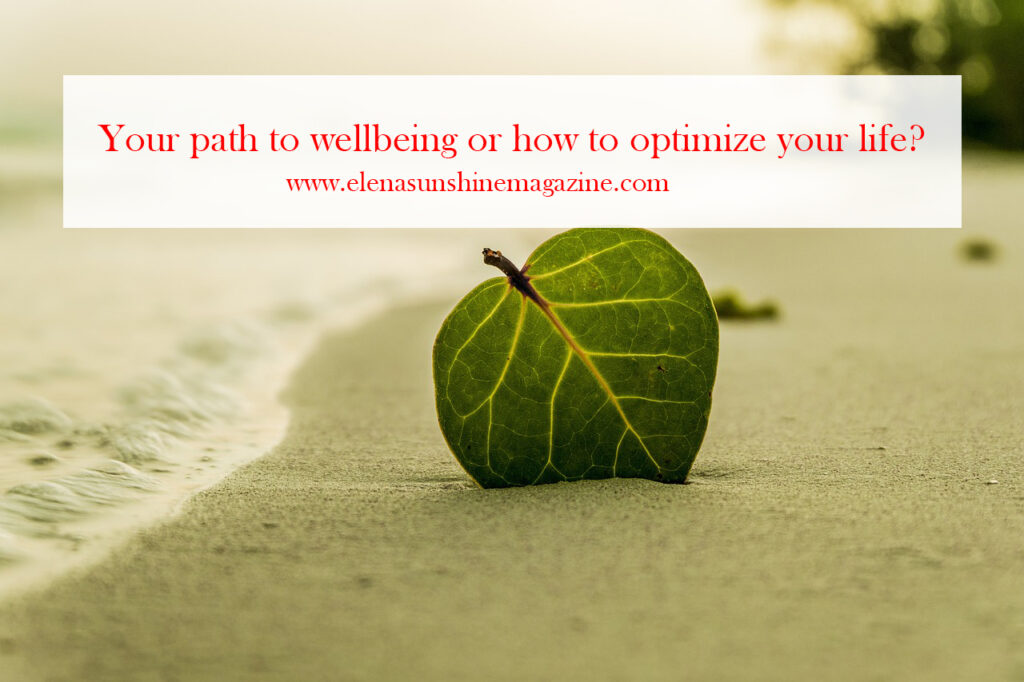Optimization of life is an individual approach to shaping the thinking and lifestyle of a person who makes himself as comfortable, safe and effective as possible, based on his current capabilities and limitations. Your path to wellbeing or how to optimize your life.
Does life optimization have an endpoint? This is unambiguous in consumption, and in interaction with the inner and outer world – the psyche and the surrounding reality are constantly dynamic (you need to master new contact options).
The development of three intelligences puts you on the path of optimizing your life: emotional, logical (cognitive) and bodily. The more you understand at the theoretical and practical level, the easier it is for you to optimize your life with the help of already accumulated knowledge.
The way of optimizing life, the corresponding paradigm is one of the most successful ways to live life most successfully.

What should I do? Your path to wellbeing or how to optimize your life.
#1. Developing a plan. One of the most effective rules: in any incomprehensible situation, write a plan. This will help you realize 100% of your strength, but get out of a stupor.
#2. The main question is: what do you want? It is important to understand here that this question can be asked at different levels. The Dilts pyramid will help you with this – a great supporting tool that helps in your career and personal life.
Neurological levels
1. Environment
2. Behavior
3. Capabilities and abilities
4. Beliefs
5. Identity
6. Mission

#3. What do I have? What don’t I have? Listing your resources. It is important to take into account not only material resources, but also physical and emotional (temperament, psychotype, level of intelligence, attention, concentration, extra/introversion, memory).
And what is your average schedule of the day? If you want to improve your life, you will have to change it one way or another. To understand how to do this optimally, first you need to figure out exactly how your days are going.
Here you need to learn how to observe yourself and your actions during the day (and not just one).And learn to be honest with yourself, learn to fix them without evaluation. A slightly easier way for beginners and those who have been used to keeping all this in focus for a long time.
Health: well-being, appearance, mobility, mood, walking, cheerfulness, nutrition, regime, sports, sleep.
Relationships: communication, friendship, love, family.
Spirituality: faith, creativity, art.
The brightness of life: entertainment, recreation, hobbies, travel, impressions.
Self-improvement: training, personal growth.
Security: income, expenses, living conditions.
Vocation: work, career, business, profession, employment, social status.
Environment: relatives, colleagues, friends, neighbors, opponents.
#4. We set goals. We run through this question on each highlighted (significant for you) area. If she is significant, you want something from her. The better you will understand at the level of concrete results. The easier it will be for you to build a route to achieve each of these goals. Try not to set “emotional control goals” – this is a waste of your resource.
Speaking of goals. “Want” and “Goal” are two different things. Set no more than 3 global goals for the year. Most of them, in any case, will either be deformed, or will disappear, or will not be executed, and you will not keep more than 4 for a year with a resource.
#5. How will you achieve this? Think over what exactly you need to do to reach the goal. There is one nuance in this: tactical goals are formed from strategic goals.

#6. Simplify the paths. It’s a skill worth learning. Often people complicate their own lives simply by inertia, from ignorance that it is possible and necessary to choose easy ways. It’s all very individual. Including in order to reflect on the obvious ways. And even faster and easier?
#7. Take it and do it. Learn to set goals for the day/week and achieve them. Life is optimized exactly like this: they found out what was missing, they wanted to, assessed their resources and limitations, set a goal and started doing it. And life is optimized. Learning to live in this mode is a matter of at least a year of constant practice. Firstly, this is not much at all, and secondly, it is much better than spending the same year in unsatisfactory conditions.
#8. Rest. Setting up a quality holiday. This is a recommendation that will ensure you have a reasonable level of personal boundaries. Learn to spend time without gadgets and other cinemas – in the world of physical reality. Everything related to the activity of the body helps with this well: drawing, sports, solitary walks.
Learn to sleep the required 7-9 hours. Optimizing your life is a process that involves a gradual, often drastic transformation of life and takes more than one year. But in return, you will get a life that you really would like to live, and not that you are living, because there is nowhere else to go.
What skills does emotional intelligence consist of? Your path to wellbeing or how to optimize your life.
Emotional intelligence is the skill and ability of a person to correctly recognize, recognize and control not only their own, but also other people’s emotions. And on the basis of this to be more successful, happier, interact with others.

#1. Self—awareness is a person’s ability to be aware of their emotions, analyze and interpret them correctly. If you know how to focus on the experiences you are experiencing at the moment. You always know how you feel and how emotions affect your actions and decisions.
#2. Self—control is the ability to maintain emotional balance, especially in critical situations. To own emotions does not mean to suppress them: self—control implies conscious management of them. And suppression is hiding or ignoring, which leads to irritability, anxiety and affects productivity.
#3. Motivation is the ability to enter into emotional states leading to success.
#4. Empathy is the ability to empathize with the emotional state of others. This is to feel yourself in their place, tune in to them in any of their states, accept someone else’s mood, read nonverbal signs. If you are able to detect changes in your emotional state, then you can intuitively understand the states of others.
#5. Social skills are skills that allow you to successfully interact with others. The ability to control feelings and manage them allows you to better evaluate factual information: if emotions overwhelm, it is always difficult to make the right decision.
How does it work? Your path to wellbeing or how to optimize your life
There is a certain algorithm:
1.To realize your emotion.
2.Understand the goals in a specific situation.
3.To determine in which emotional state it is possible to achieve the greatest effect in this case.
4.Choose a way to achieve it. Get into the right emotional state.



